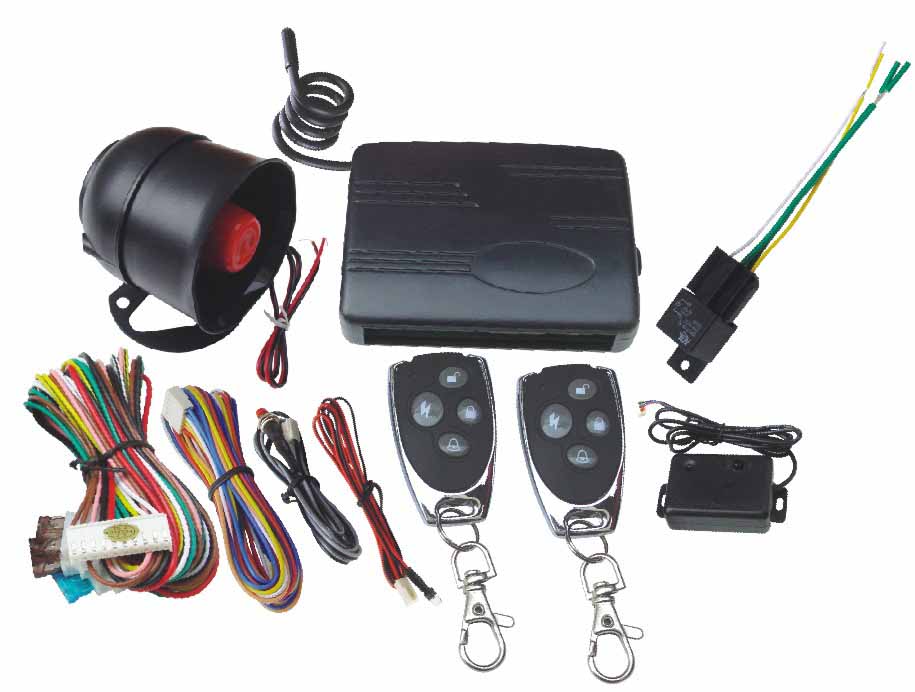Why a Car Security System is necessary?
If you have many valuables in your car, or your living surroundings is not a place of good security, then a car alarm can certainly leave you some peace of mind. Car security system is a very rewarding investment. Basic car alarms are affordable. Even for the fancier ones, it is better to equip such devices than to lose your valuables or even your car. While car security systems can’t and don’t stop all thefts, it can certainly make your car less appealing in many thieves’ eyes.
There are four main factors that can help you settle on the best car security system for your vehicle. Some of these factors are more important than others, but it’s important to take them into account. Before you buy a car alarm, the most important factors to consider include: sensors, sirens, documentation, system expandability.
Shake It Up
Since car security systems depend on a variety of sensors to detect the presence of a thief, this is the most vital factor to consider. Basic car alarms just come with door sensors, but more expensive systems can be much more complex. Some of the most common sensors include: door sensors, movement sensors, microphones and pressure sensors, motion sensors.
If you’re working on a tight budget, a basic alarm that only has door sensors is better than nothing. However, it is very easy for thieves to bypass these systems by just breaking a window. If you want to prevent that, you’ll need a system that includes a microphone or pressure sensor. Movement sensors can also be helpful, since they will trigger the alarm if a thief rocks the vehicle back and forth or from side to side.
Motion sensors are useful if you have a convertible, since they allow you to leave the top down. However, these sensors are difficult to calibrate properly, and any movement in or near the vehicle will cause the alarm to go off. That means a stiff wind and some leaves or a pair of fuzzy dice hanging from the mirror will often trigger a false positive, which won’t make you very popular with the neighbors.
Make Some Noise
After you’ve decided on the sensors you need, you can start thinking about the siren. The primary purpose of the siren is to draw attention to your vehicle, which may cause the would-be thief to abandon it in favor of easier targets. However, the siren itself may also deter the thief from entering your vehicle or driving away in it. Some sirens are designed to be mounted inside the vehicle cabin, in which case they can generate a level of sound that is actually painful to the would-be thief.
DIY Car Alarm Installation vs. Hiring a Professional
Installing a car alarm isn’t exactly rocket science, but the difficulty is often compounded by poor documentation. If you intend to save some money with a DIY installation, then it’s vital to look at the available documentation before you make a purchase. Many inexpensive car alarms work just fine once they’re installed, but they may come with poor documentation. And if you can’t tell which wires to cut or splice into, your money-saving DIY installation can turn into a headache real fast.
Some car alarms come with excellent documentation, and certain retailers even provide end-user support to help you through the DIY process. If you don’t have access to detailed wiring diagrams for your vehicle, and you haven’t installed a car alarm before, that kind of support is indispensable.
Expandability and Additional Features
If you’re looking beyond the basics, there are a number of useful features that can be integrated into a car alarm. Some of the features you might look for include: remote start, door lock control, driver’s door priority unlock, window controls.
Even if you’re only looking for a basic alarm right now, buying a system that has one or more remote outputs can allow you to expand it in the future. That will let you to add bells and whistles to your bare bones security system as time and budget allow.

Choosing the appropriate alarm for your car
by
Tags:
